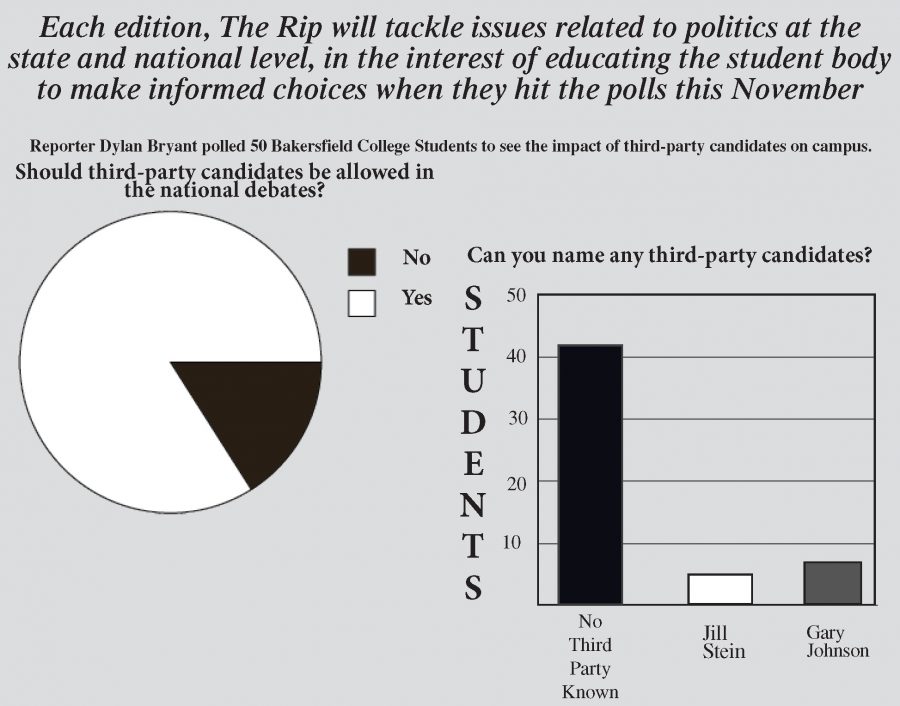Presidential alternatives in third parties
ELECTION 2016
September 7, 2016
For over 150 years, the same two political parties have been the largest power brokers in the United States. When election years roll around, voters hear about “third-party” or “outside-party” candidates running for president, and sometimes they gain attention, yet almost always fade into anonymity.
This election season is different, though, in that the two main parties have nominated the two candidates that some Americans won’t vote for, creating what seems to be a perfect environment for an outsider to win.
The two candidates hoping to seize that opportunity are the Libertarian Party’s Gary Johnson, and the Green Party’s Jill Stein.
Gary Johnson, an ex-Republican as well as the former governor of New Mexico, is making his second run for the White House on the Libertarian Ticket. Considered the more likely of the two to actually have a shot at winning, Johnson now faces the task of earning a spot on the debate stage, which would require bringing his national polling from 10 percent to 15 percent by Sept. 26, the day of the first debate.
Johnson is considered well liked amongst millennial voters, with some polls placing him at 35 percent amongst voters 18 to 24. The Libertarian Party’s platform centers around individual freedom and autonomy, summarized by the passage, “We believe that respect for individual rights is the essential precondition for a free and prosperous world, that force and fraud must be banished from human relationships, and that only through freedom can peace and prosperity be realized.”
His campaign website lists his areas of focus as cutting wasteful spending, tax code reform, protecting the environment and ending the war on drugs. He has been known as controversial for being an open consumer of marijuana products, even in his home state where they are illegal.
Jill Stein, the Green Party’s candidate, is a former medical physician and has run on the Green Party’s ticket once before in 2012. Her campaign has very much been centered around framing herself as the only “true progressive” left now that Bernie Sanders has lost, and she has adopted the motto “Abandon the lesser evil for the greater good.”
Her campaign is centered on the issues of environmental justice and protection, ensuring jobs, education and healthcare as human rights, reforming the criminal justice system and reforming the campaign finance system.
The Green Party rose to notoriety in the last decade as an alternative for those who felt the Democratic Party is not progressive enough, and is known for their dedication to climate change reform. Stein has the disadvantage of only being on the ballot in 42 states, and is polling at 3 percent nationally.
Both candidates are known for being pro-legalization, pro-immigration reform, and pro-choice, yet they differ in that Johnson doesn’t support large government spending on programs such as tuition-free college, or universal healthcare, while Stein believes these are human rights.






